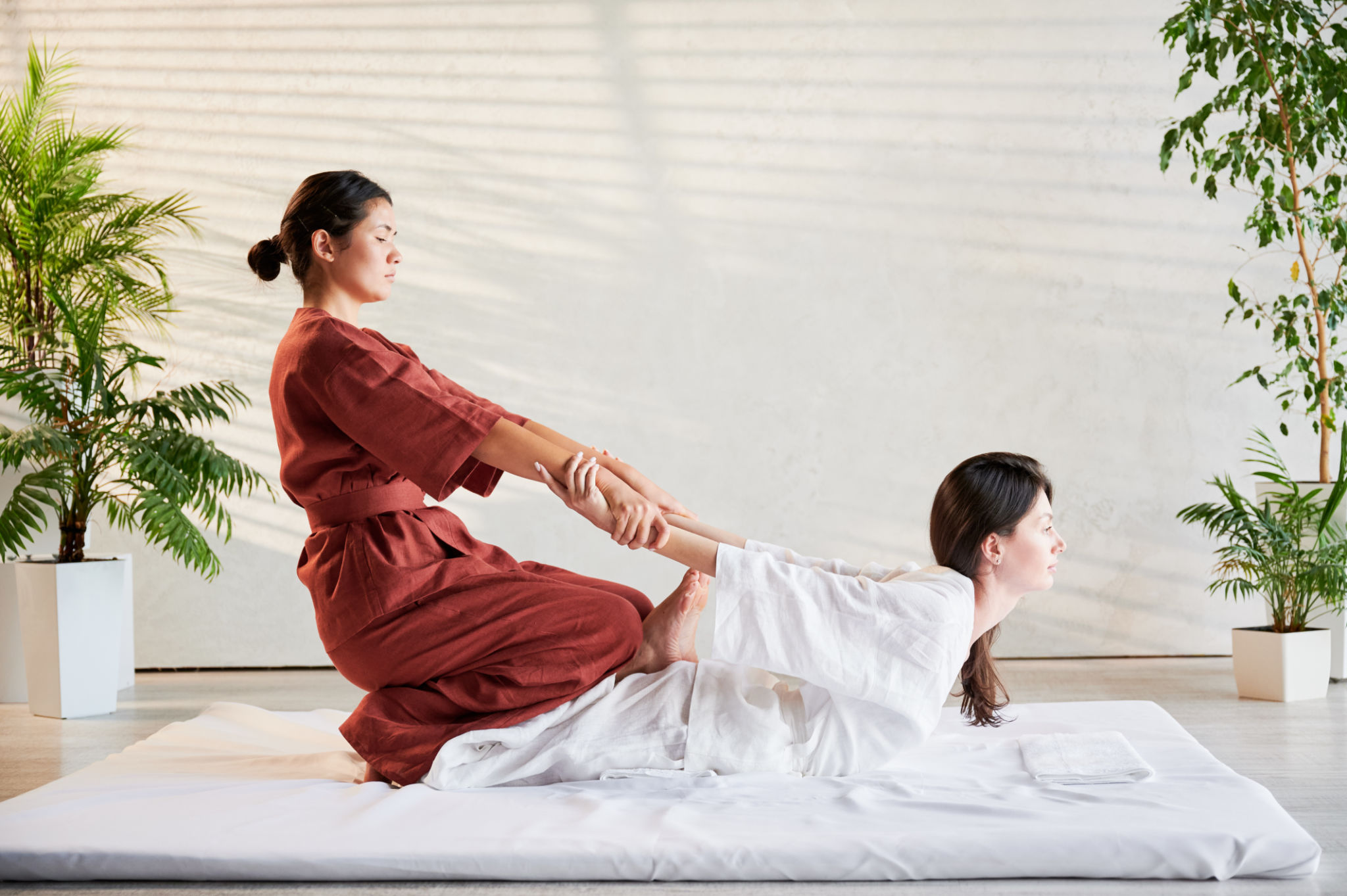The Benefits of Traditional Thai Massage: A Comprehensive Guide
Understanding Traditional Thai Massage
Traditional Thai massage, also known as "Nuad Bo-Rarn," is an ancient healing practice that has been around for over 2,500 years. Originating from India and influenced by Ayurvedic and Chinese medicine, this therapy combines acupressure, Indian Ayurvedic principles, and assisted yoga postures. Unlike Western massage therapies that use oils and lotions, Thai massage is typically performed on a mat on the floor with the recipient fully clothed.

The Techniques of Thai Massage
Thai massage employs a unique set of techniques that involve a variety of movements such as stretching, pulling, and rocking. These actions help to relieve tension and improve flexibility and circulation in the body. The therapist uses their hands, elbows, knees, and feet to apply pressure to specific points on the body, enhancing energy flow and promoting balance.
One of the key elements of Thai massage is its focus on "Sen" lines, which are similar to the meridians or energy pathways in Chinese medicine. By stimulating these lines, practitioners believe they can promote healing and restore the body's natural energy balance. Sen line therapy is particularly beneficial for improving overall well-being and vitality.
Health Benefits of Thai Massage
Engaging in regular Thai massage sessions offers numerous health benefits. Here are some of the major advantages:
- Improved Flexibility: The yoga-like stretching movements increase flexibility and range of motion.
- Enhanced Circulation: The massage techniques help stimulate blood flow, which can boost energy levels.
- Stress Reduction: The combination of acupressure and stretching can significantly reduce stress and promote relaxation.

Pain Relief
Thai massage is also well-known for its pain-relieving properties. It can be particularly effective for reducing chronic pain in conditions such as back pain, arthritis, and headaches. By targeting specific pressure points, Thai massage can alleviate muscle tension and improve joint mobility, leading to long-term pain relief.
Mental Health Benefits
Beyond physical health, traditional Thai massage offers several mental health benefits. Regular sessions can help decrease anxiety levels, improve mood, and enhance mental clarity. The meditative aspect of Thai massage encourages mindfulness and a deeper connection between body and mind.
This therapy is often used as a complementary treatment for mental health conditions, providing a holistic approach that considers both physical and psychological well-being.

What to Expect During a Session
If you are considering trying traditional Thai massage for the first time, it helps to know what to expect. Sessions typically last between 60 to 120 minutes. You will remain fully clothed in comfortable attire as the therapist guides you through various stretching and pressure techniques.
The therapist may use their body weight to apply pressure and perform stretches, ensuring that each session is customized to your comfort level and needs. Communicating openly with your therapist about any discomfort is important for an optimal experience.
Conclusion: Embracing Tradition for Modern Wellness
Traditional Thai massage is not just a relaxing experience but a powerful tool for enhancing overall health and well-being. Its holistic approach combines physical therapy with mental relaxation, making it an ideal choice for anyone looking to rejuvenate their body and mind. Whether you seek relief from chronic pain or simply wish to unwind from daily stressors, Thai massage offers a comprehensive solution for modern wellness.
By embracing this ancient practice, you can open the door to improved health, better stress management, and a more balanced lifestyle. Consider incorporating traditional Thai massage into your wellness routine to experience these profound benefits for yourself.